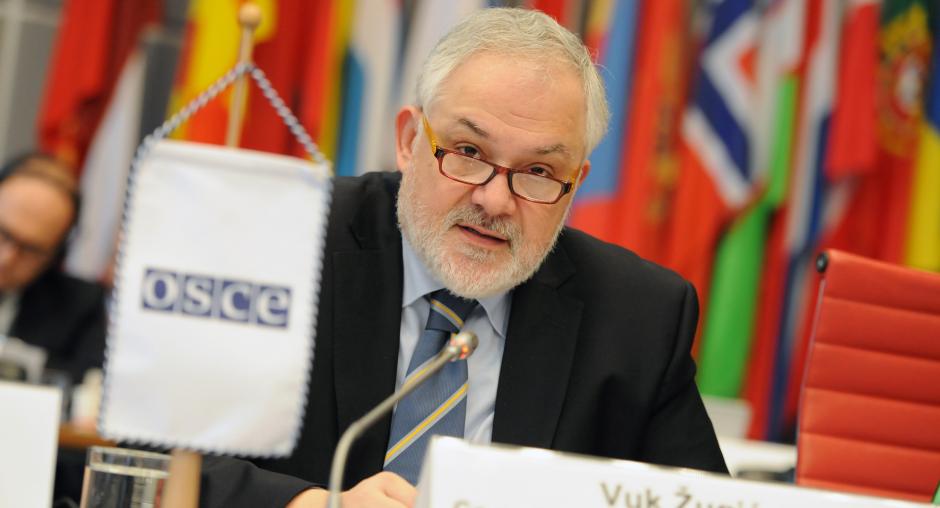OSCE’s contribution to global development agenda from an economic and environmental perspective

My office held a first in a series of webinars on the economic and environmental impacts of COVID-19 and its security implications.
Some 120 participants, OSCE delegations, our partners and experts virtually discussed the potential aftermath of the pandemic and how we at the OSCE can contribute to the global development agenda from an economic and environmental perspective.
Solutions demand a platform for dialogue and policy co-ordination, which we will and can facilitate.
 Vuk Žugić, Co-ordinator of the OSCE Economic and Environmental Activities speaking at the first webinar in a series on the economic and environmental impacts of COVID-19 and its security implications, 29 April 2020.
Vuk Žugić, Co-ordinator of the OSCE Economic and Environmental Activities speaking at the first webinar in a series on the economic and environmental impacts of COVID-19 and its security implications, 29 April 2020.
What to expect
In the weeks to come, my office (OCEEA), with the support of experts and practitioners from national governments, think tanks, international organizations, the private sector and the academic world, will continue to organize a series of webinars to discuss the economic and environmental impact of COVID-19. We will be looking into how the OSCE could support its participating States in coping with and recovering from the crisis.
The webinars will focus on the following topical clusters: good governance- open data and transparency, trade and connectivity, labor migration and social economy, keeping strong attention on the impact of digitalization, envrionmental co-operation and/or good environmental governance.
Economic sphere
Many governments are finding ways to shore up their health systems, protect their economies, and enforce lockdowns. Priorities are shifting dramatically.
Digitalization emerged as a critical component of the anti-crisis response in many areas of the economy, and we must focus on sharing best practices in the field.
Investing in digitalization could help increase the productivity of economies by developing a more productive and sustainable service sector, and also in promoting good governance, enhancing the accountability of public administrations and reducing corruption.
Environmental sphere
The implications of COVID-19 on the environment and climate change, require joint responsive actions.
We need to keep environmental issues as well as climate resilience high on our agenda.
We are currently observing improvements in air quality and reductions in greenhouse gas emissions. But these are likely to be valid only for the short term.
Once the economy begins to recover, these short-term environmental gains will probably be lost quickly, and even a sudden rise in pollution.
A climate-resilient world can only make us safer, healthier, more prosperous and more resilient to potential future shocks.
Focus on connectivity and resilience
COVID-19 does not stop at borders. This is true for both economic and environmental problems.
In today’s highly interconnected world, it is necessary to have strong solidarity and a co-operative approach at all levels: community, state, regional, and global.
An inclusive approach of all: national governments, think tanks, civil society, international organizations, the private sector, and the academic world will provide the best outcome.
We can clearly see the importance of international co-operation, as the most effective way to emerge from COVID 19 crises stronger than before.
Strengthening the resilience of our economies and societies is best addressed collectively.

